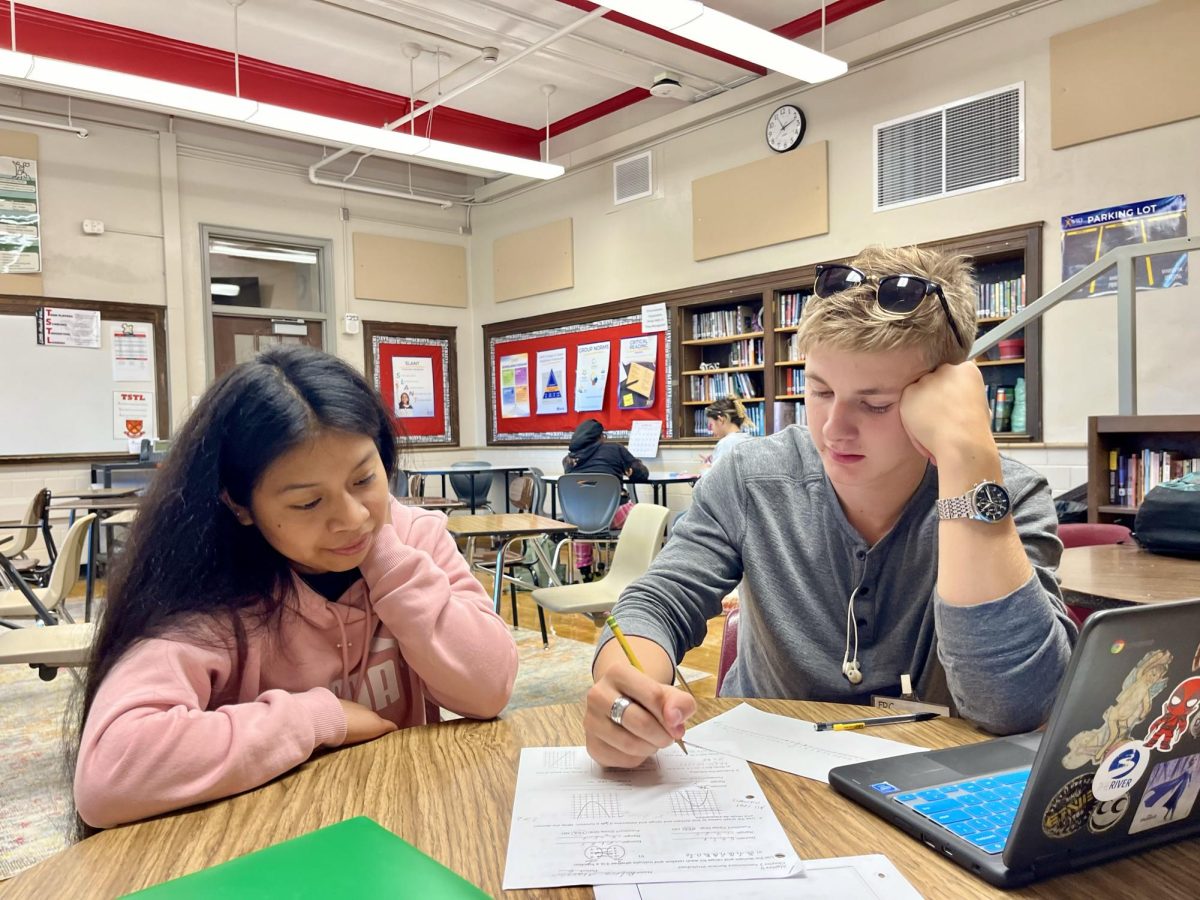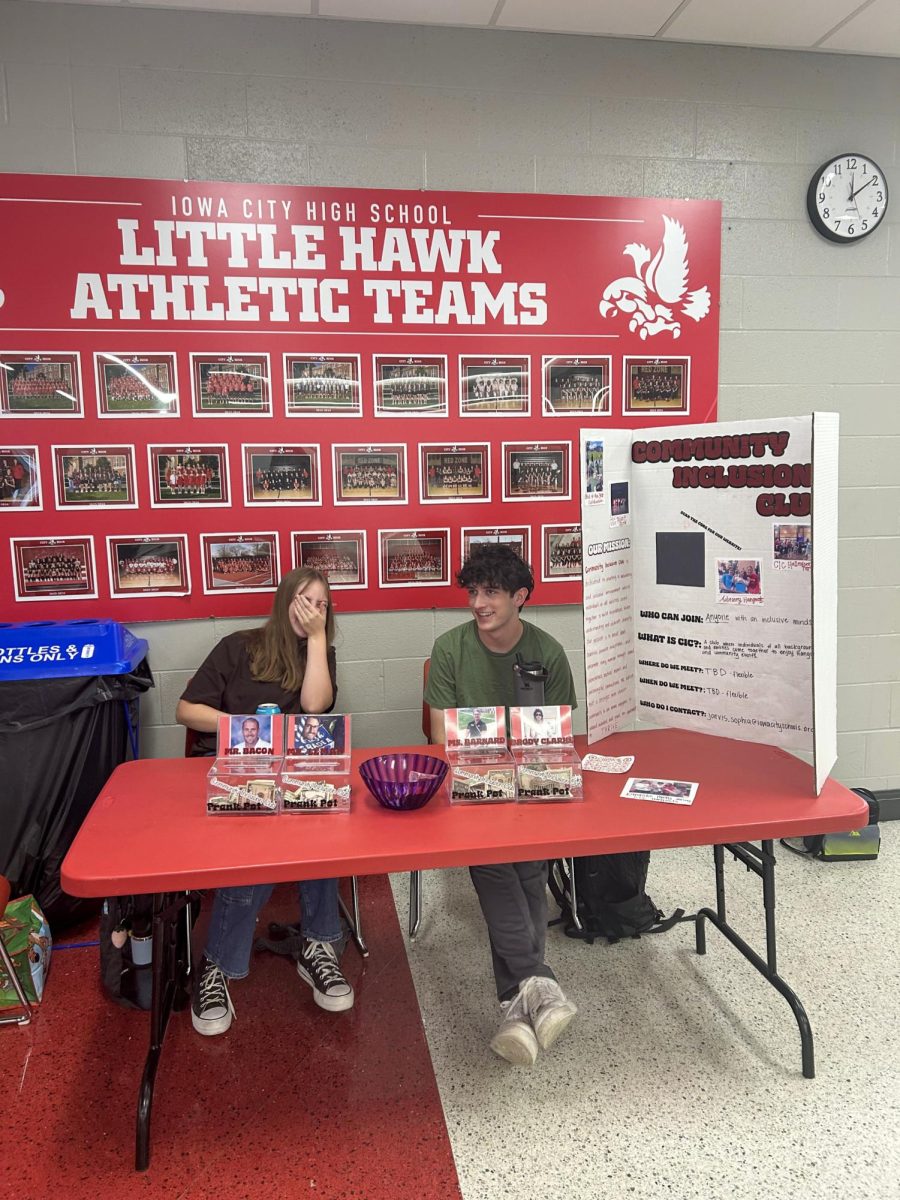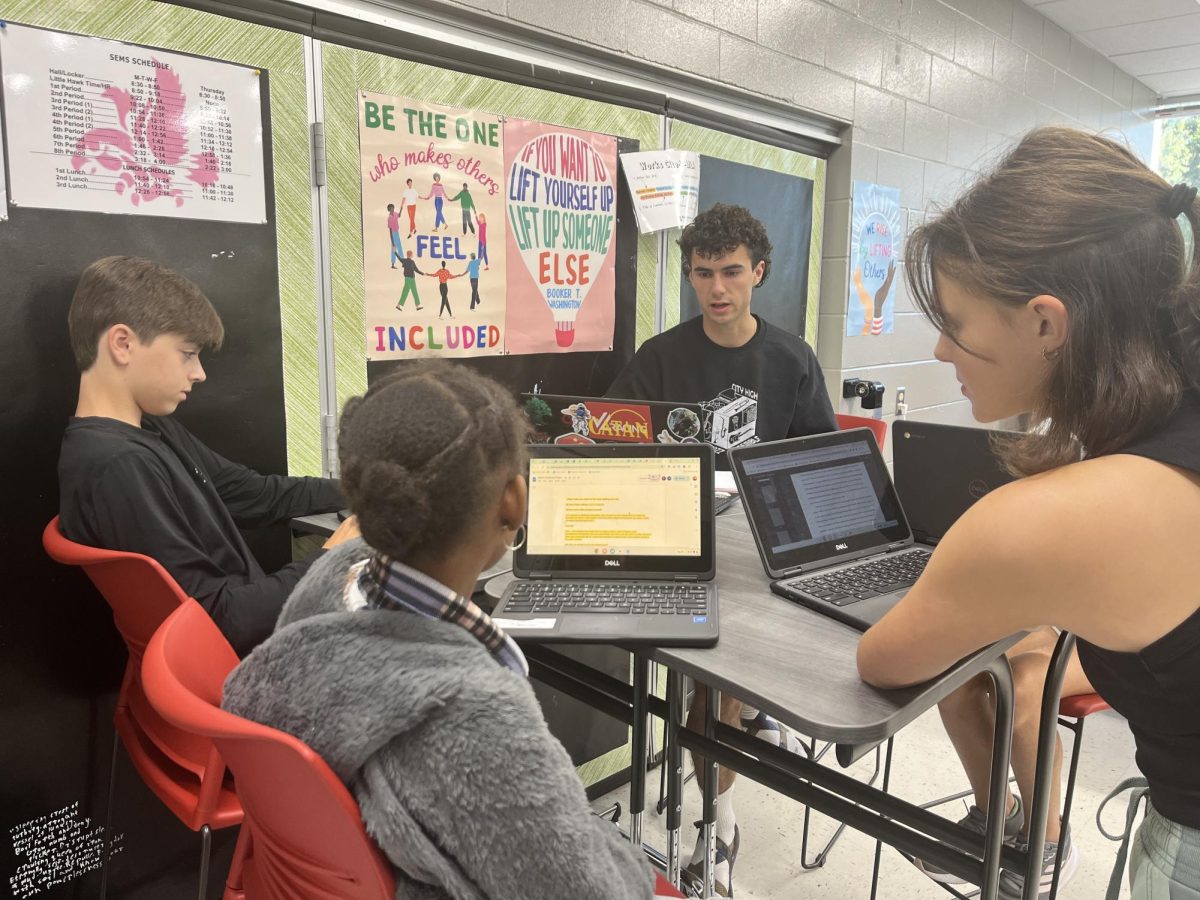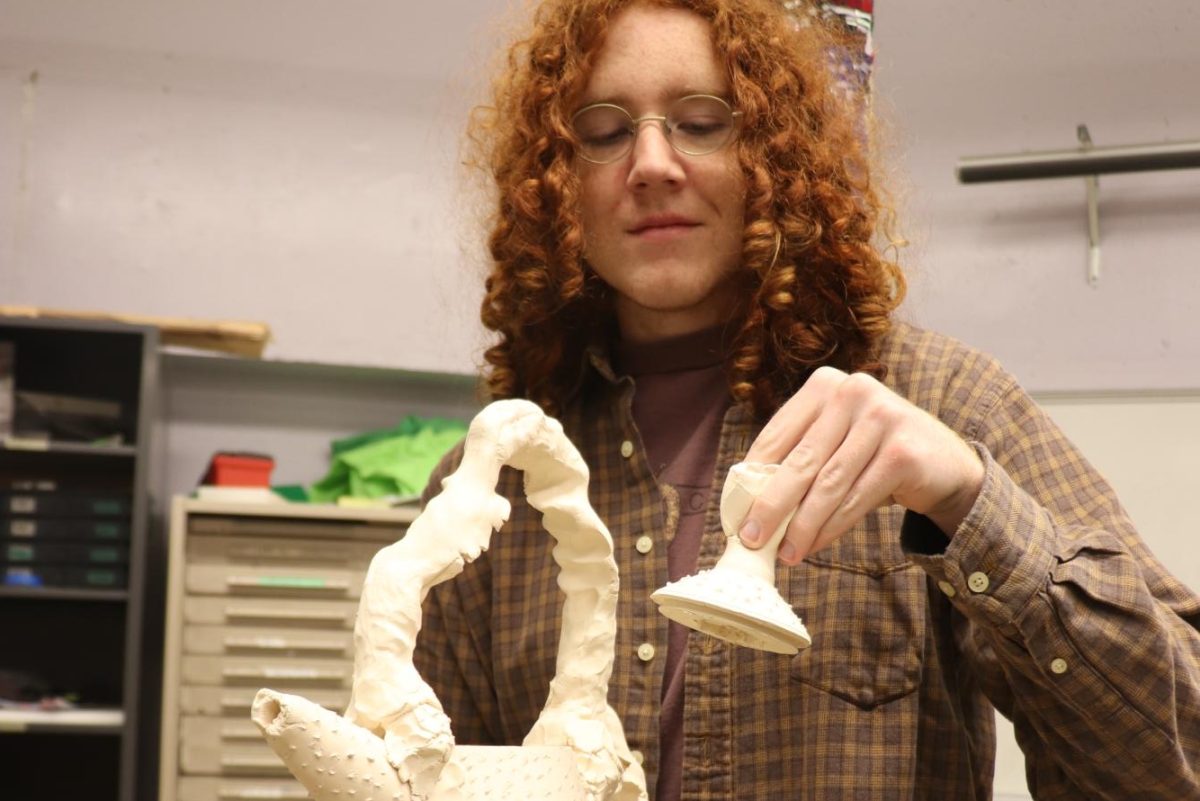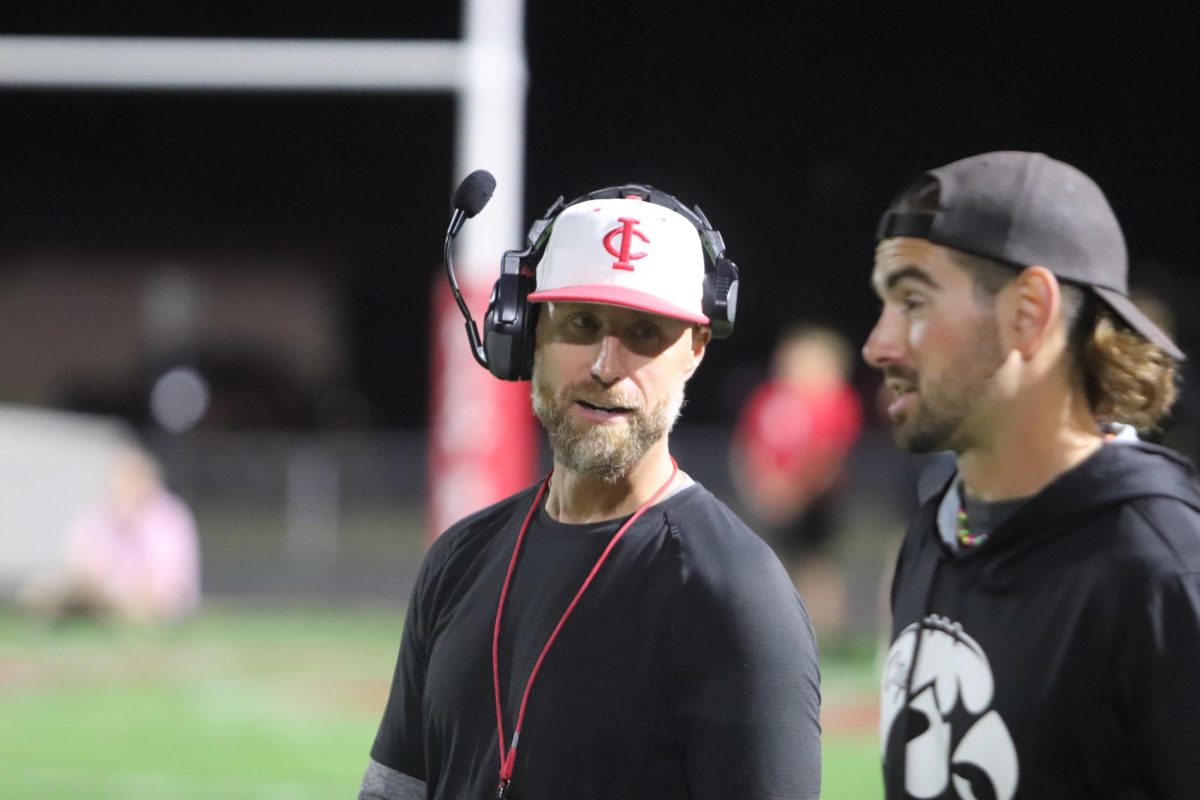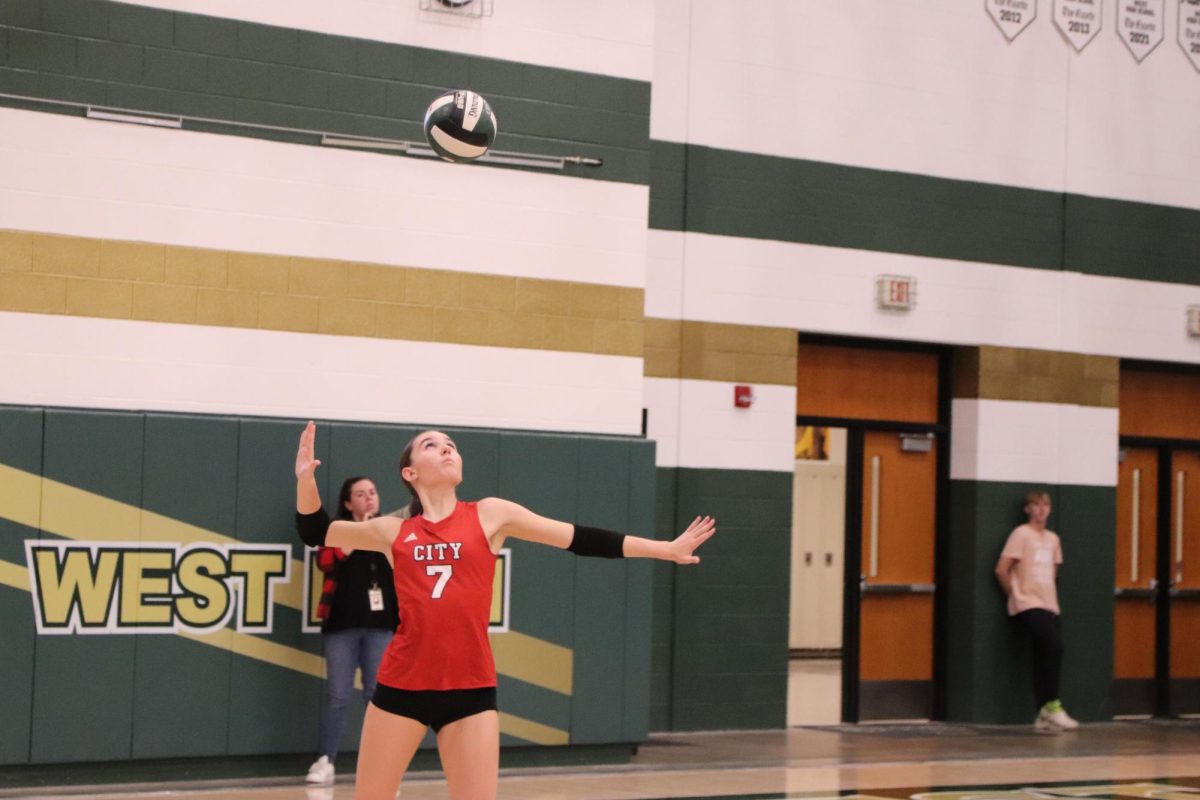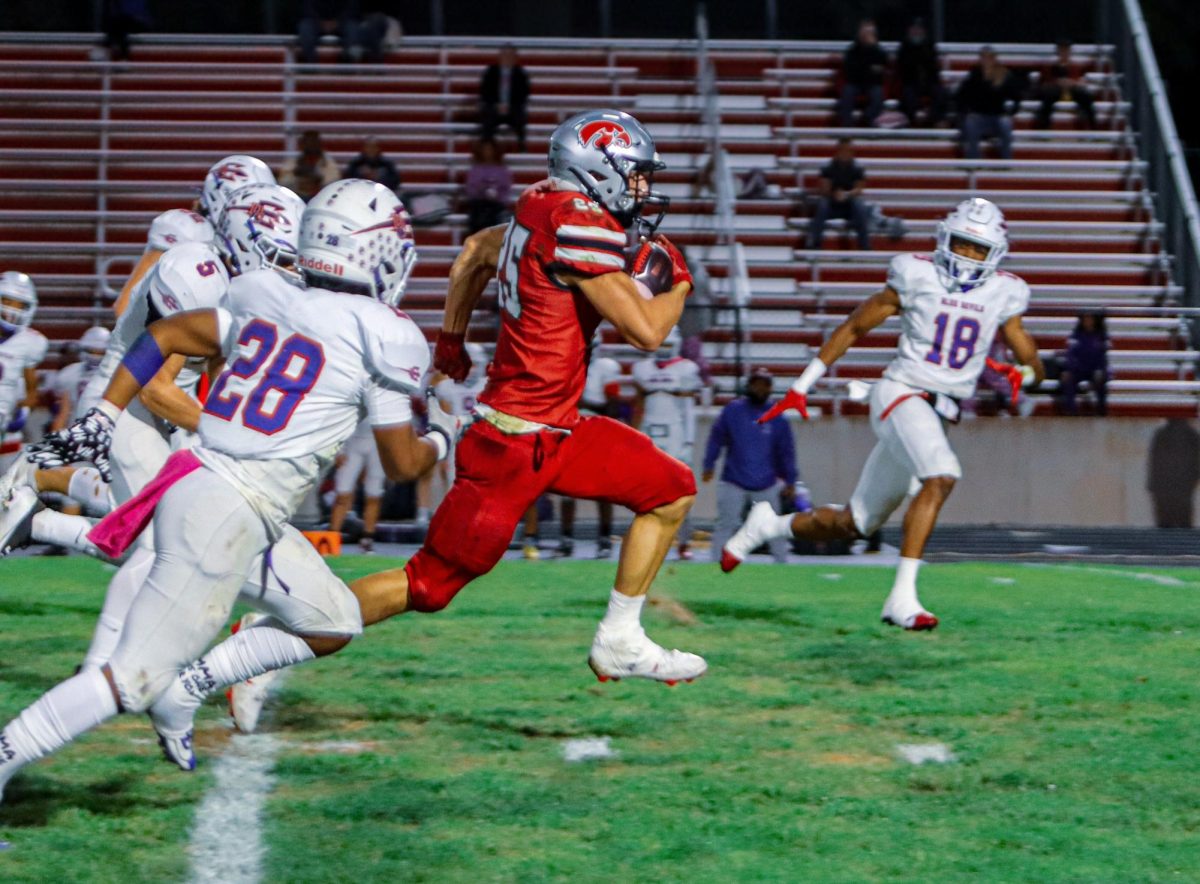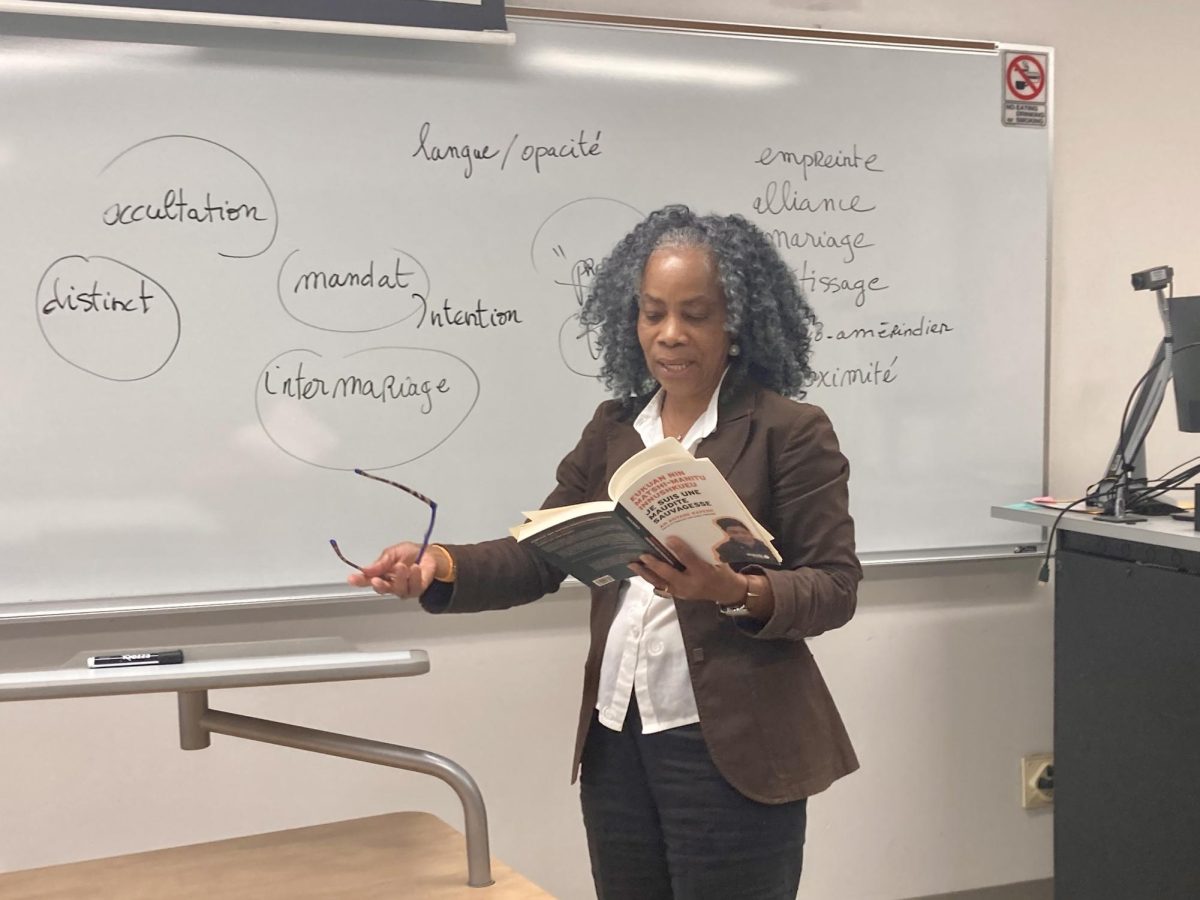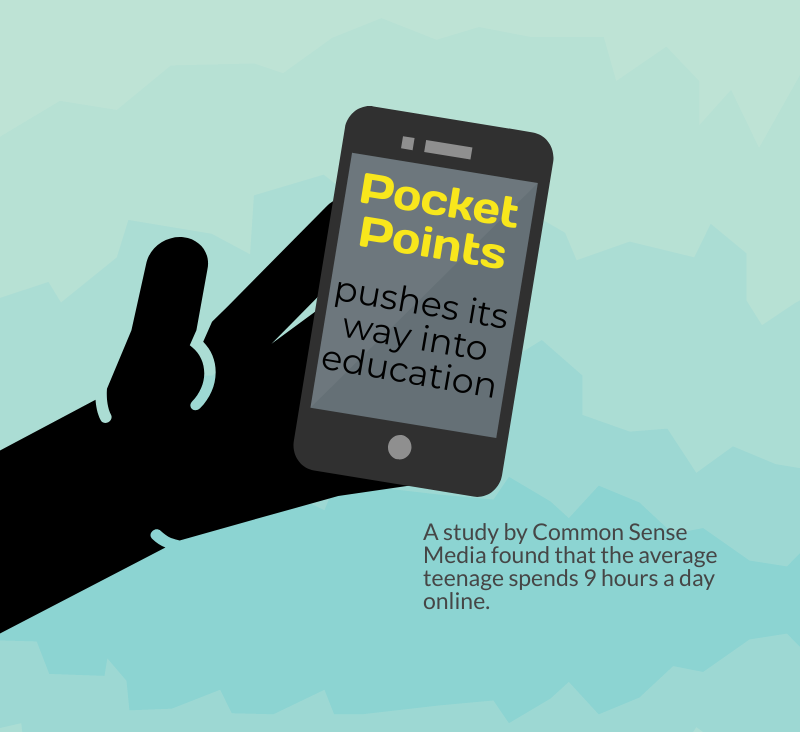Pocket Points Pushes Its Way Into City Classes
Teachers are using the app Pocket Points as a new extra credit system to help students stay off their phones
When planning out this school year, Language Arts teacher Anna Basile drew upon her experiences as a student to help her design the extra-credit system she aimed to incorporate in her classes.
“My system is really indicative of the fact that I was never a student that took advantage of extra credit. It was enough for me to just do what I was supposed to do,” Basile said. “For me, doing anything extra was silly, unless it was a purely enjoyable thing. It seems that extra credit could serve the regular credit system in the fact that students are remaining focused and using time to their advantage.”
Basile’s new extra credit system works through an app called Pocket Points. After downloading this app on your phone, a student can enter Basile’s class code. The app senses when the student is in class and their phone is off. It awards students points based on how long they go without using their phone. Students can also earn points by setting goals for themselves.
The points students earn can then be put toward achieving rewards as a class (like extra credit), and receiving discounts at local and online stores and restaurants.
“One benefit of using this app is that I can use points that I earn to get deals and earn extra credit,” said Hannah Fast ‘21. “Even if I don’t need the extra credit, I’m still inclined to stay off my phone during class.”
Pocket Points can also make it easier for students and teachers when extra credit is involved.
“When it comes to extra credit, I’m not saying my way is better. It’s just a way for me to be lazy,” Basile said. “Pocket Points could definitely be a strategy for extra credit if kids are liking it because it gives kids what they want. It seems like a win-win situation to me.”
So far, this system has received positive feedback from people who are using it.
“I really love Ms. Basile’s extra credit policy,” Fast said. “It would be amazing if my other classes would use this system for extra credit. I think it is really effective in getting students to stay off their phones during class. When I heard about this system, I wondered why we haven’t been using it for years.”
One reason for this app’s popularity is that is makes it more fun for students to do what they are already being expected to do.
“I think [that Pocket Points is better than just setting expectations for students] because everyone appreciates the game,” Basile said. “Game-ifying something that we should be doing anyway is always going to be more engaging.”
Basile sees an importance in helping students prioritize classwork over phones.
“If we all were self-motivated, and we all saw the value in what we were doing together every day, then we wouldn’t need Pocket Points. But it’s hard to motivate oneself every single minute of every single day,” Basile said, “especially in an environment like high school, where we’re expecting you to be experts seven times a day in seven different things. That is just emotionally and mentally taxing. And so, of course, the phone has become the high schoolers’ recess. And wouldn’t any kid rather be at recess?”
Students have reported feeling motivated by this app, and not only in class, but outside of school as well.
“I can earn points for staying off my phone at home as well as at school,” Fast said. “This is great because as a teenager, I know I spend too much time on my phone and I’m always prepared to open it for whatever reason. With this system, I want to stay off my phone as much as possible to earn more points throughout the day.”
However, this app has not worked perfectly because the system is so new.
“Pocket Points was brand-new this summer; this is totally guinea-pig style,” Basile said. “It’s not working perfectly for everyone, which is something that we’ll have to deal with. Technology is as technology does, but we’ll make it as equitable as possible continuing on.”
Some people may wonder what benefit the Pocket Points system holds, because it is so different from more traditional means of extra credit.
“Extra credit should be extra. I spend a ton of energy trying to make activities that meet our curricular needs and standards highly engaging,” Basile said. “For some students, that is not enough to get them where they feel they ought to be. So anything extra should be, in fact, extra. I don’t want to have to be as thoughtful and creative about extra credit as I am with the core stuff.”
As technology continues to be integrated into people’s education and day-to-day lives, some have seen problems arise. Basile has said that she has had problems with kids being on their phone too much in class.
“I think it’s really important that not all teachers may view students with their phones out in class the same,” Basile said. “A traditional outlook might be that it’s a sign of disrespect, but that’s not how I see it. In fact, I see it more as just a basic lack of self-control. For instance, when my husband is talking to me and I am flipping through Instagram, I’m not giving him my full attention. That might read as me being disrespectful, but it is really just me lacking self-control in that moment.”
Some students do experience a degree of concern for how their teachers and peers view them when they are on their phone.
“One problem I have with this system is that to earn points, I have to get on my phone to activate the app,” Fast said. “When I go to class and I get out my phone to start tracking my points, some of my teachers might think I’m on my phone rather than setting up.”
Despite these concerns, a big motivation that Basile had for putting Pocket Points into place was to teach students the importance of self-control.
“It’s not like I demand respect, it’s that students need to be able to manage and control themselves when in environments where they’re not prioritizing the thing that’s important,” Basile said.
Pocket Points is beneficial in helping teachers teach these important life skills to help students succeed in school and beyond.
“The community of Iowa City is putting us all in this building for free to make sure that the custodians of your education, your teachers, are giving you what you need to be able to thrive and be an active citizen,” Basile said. “If left to your own devices, you’re prioritizing Instagram every day over what the community needs you to be able to do by the time you graduate, then we’re doing you wrong.”
Basile thinks that it is important to teach these life skills because students need to be practical about their futures, which is why Pocket Points has been helpful.
“We can’t all be Kardashians, and that is just the truth,” Basile said. “We’re not all going to be influencers, at least on the Internet, but we can all be influencers in real life.”
Your donation will support the student journalists of Iowa City High School. For 2023, we are trying to update our video and photo studio, purchase new cameras and attend journalism conferences.

